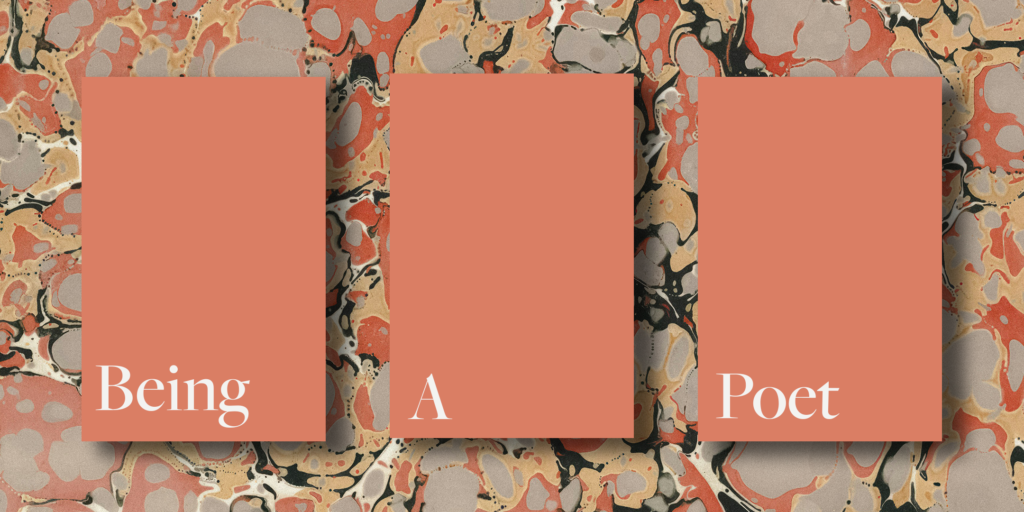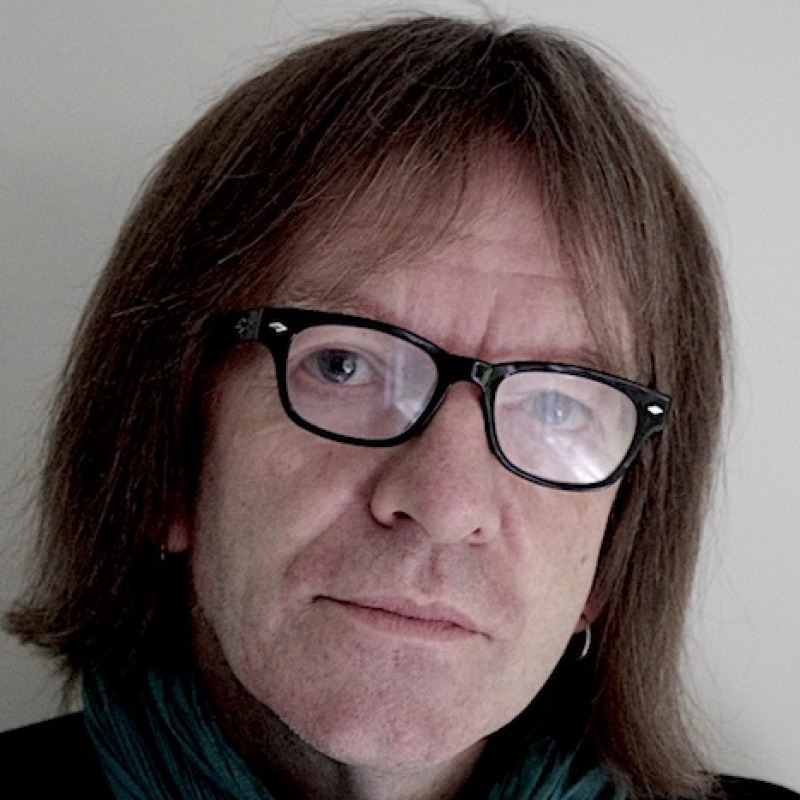In this series, we interview our tutors about poetry and its place in their world. These interviews will cover creative writing tips, excelling in a poetry workshop, building a literary career, and finding your poetic voice. Here’s Matthew Caley discussing feedback, originality & ownership in workshops.

Does Taking Feedback Mean It’s Not My Poem?
Can you discuss the emotional aspect of receiving feedback on something as personal as poetry? How do you navigate feelings of vulnerability or defensiveness while still remaining open to constructive criticism?
In my view, these are very loaded words – ‘emotional’ and ‘personal’, and ‘vulnerable’ all used within the body of one single question, and there’s a presumption in the question that these things are common in workshops, or the most important thing to deal with.
In many years of holding workshops with all ages and types of person/poet, I’ve experienced hardly any incidents where emergent poets get over-emotional or display levels of vulnerability that get in the way. [Nor in decades of teaching art & design in Universities with many kids from non-traditional backgrounds, either, even if I know they are vulnerable. You need to know how to treat people.] Critique is attention. Poets usually feel they don’t get enough. There’s some shyness, too much self-deprecating humour, and some uber-modesty, sometimes a little over-confidence, some ‘quasi-fear’, but this is always over-ridden by the need to learn. They want to get better as poets, so they happily absorb the critique – though that’s not the same as agreeing with it. It’s more of a complex, a dynamic process between poet[s] and tutor.
Poetry is an art made of words and the ability to put words into dynamic interaction. It’s an over-popular trait to foreground poetry as ‘an emotional art’ or one that must ‘provoke true emotion’ or the poem as a vehicle that must convey the personal and display ‘feeling’. But it’s much more than that. And those words are very prescriptive.
Our current moment is hugely over-emphasising certain persons/societal ‘issues’ and telling us art is expected to be born out of these, embody them, address them, or somehow solve them. By less scrupulous people, these ‘issues’ are being monetarised, often. This seems monolithic and across the board. Art is actually in a state of massive pluralism and variety, but this isn’t being reflected. What is being reflected is a monolithic focus on the ‘socio-political’ to the exclusion of the many other approaches of poetry. I think this is in inverse ratio to the welfare state and funding for helping the most vulnerable – who are dealing with these issues in reality – being slashed to virtually nothing over the last fourteen years. So ‘art’ and ‘education’ have to take up the slack [and it’s not their specialism] and are encouraged to signify about these issues whilst actual support vanishes.
What I value most about poetry is that it offers a tangential slant on the orthodox, generalised viewpoint, it’s against easy definition, for the lifeblood of ambiguity. Vast sections of poetry, currently, are posing as being ‘against’ something, but are actually ploughing a hugely monolithic and orthodox furrow that brooks no alternative.
Tutors should [respectfully] question any ‘received’ orthodoxies of approach.
I think art helps people – that’s one aspect of it, but not necessarily the most important one – so does going for a walk in the park; we don’t need to add more to it, to keep saying this is the main aspect of it. Concentrate on ‘the work’.
Of course, general respect in the group, and behaving respectfully and empathetically to everyone is important. But that, for me, is a given in all situations.
I would say – don’t mistake subject matter for the actual poem. For me, if the words aren’t arranged in a dynamic and artful and original manner, it’s irrelevant what the supposed ‘subject-matter’ is, or the originating event of the poem if there was one, because the poem isn’t aesthetically working on the page or spoken out. The poem is meant to be built to last beyond its context, beyond societal mores of the time, and beyond the person who wrote it. I’m critiquing the words, not the person or their experiences. Also, the poet might well not have experienced what they’re writing about. All manner of feints and tricks might be employed to produce an effect. The poem is rarely a simple and direct transference of the poet’s actual experience, even if it seems to be that way. As a tutor I deliberately take as little note of subject matter as I can. I find it can lead you down all manner of blind alleys that miss the most useful critique. For me, the ‘feeling’ comes not from the subject matter [that might be indiscernible anyway] but from how brilliantly, or not, the words work. Their sound, cadence, heft, and weight, not necessarily their ‘meaning’, that might come much later, and might be hugely ambiguous. What the poet thinks they are writing about is often not that, but several other things. The self is adept at fooling the self. I concentrate on the words, and want the poet to go further into their ‘way with words’, whatever it is they do with them, that others don’t.
As a poet, I have someone who I show the ‘final’ manuscript of my books too, and ask them to go at it as hard as they possibly can – to critique, find fault, challenge, suggest deletions, cut the thing in half, do maximum violence and stress-testing to the work, to its aesthetic trajectory, the assumptions behind it, its concept, sequencing, the whole thing. I want it challenged. I want it examined. I want any slackness or weakness taken out. I see this as sincere attention and sympathy to the possibilities of the work. I see it as a very necessary part of the work. I might not act on all of it, but much I might take on board.
It’s useful to compare the trainee poet to the trainee athlete. If you really want to run fast, or further, and not damage yourself, you have, especially early on, to listen to the coach. You have, crucially, to put the work in – lots of it – [here is where most poets fall down, they often don’t write enough to progress as quickly as they have the potential to.]. It’s not easy. Life can get in the way. But if you really want results you have to do it. Later, once you’re winning races or breaking PB’s, you can begin to share your own opinions with the coach and debate the way ahead. It’s your body [of work] after all. That dynamic back-and-forth, and the level of honesty/openness there, will be crucial to how you improve.
Some people only want to Fun Run. But it’s not fun if you don’t train. It’s agony, actually, even at this level. So, putting the training in is not negotiable if you want to feel, at the very least, OK with what you’re doing.
The only real difference is that in ‘athletics’ the end goal is a good deal less ambiguous and subjective than in poetry. But the analogy holds.
Defensiveness is the most interesting word used in the question. We all have and employ ‘psychic defences’ – in life/in poetry – all the time: self-deflationary humour, irony, displays of vulnerability [pre-emptive defensiveness]. Recently, many younger poets have said things to the effect that they are ‘swapping irony for vulnerability’. But this doesn’t quite work for me. Because displays of vulnerability are a psychic defence equally as much as a display of irony is. They’re different sides to the same defensive act. In a poem, the actual meaning is still ‘behind’ this display, not on the intended surface of it. This, I believe is inescapable. Some critics say that a poem is a kind of ‘psychic defence’ against the influence of other poems. Some degree of defensiveness [self] will always be there, and some is necessary. Some might get in the way. It’s the dynamic between poem and poem, poet and poet, real life and poem, poem and tutor, coach and athlete which is important and will help set the right levels. The student and the tutor play in this field of dynamics.

Matthew Caley’s 7th collection, To Abandon Wizardry, is published by Bloodaxe in November 2023. Since his debut, Thirst [Slow Dancer, 1999] was nominated for The Forward Prize for Best First Collection, his work has been widely anthologised and appeared in many magazines, websites and journals. He has given many readings both here and abroad.
Matthew will be running his zoom course Technique [How to Discover or Disown It] 2.0 with us this Spring, starting on Thursday 23 January 2025.
Add your Reply
You must be logged in to post a comment.